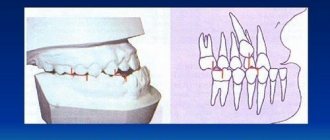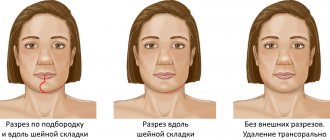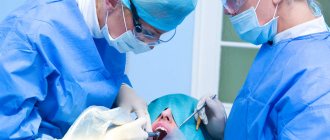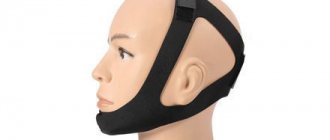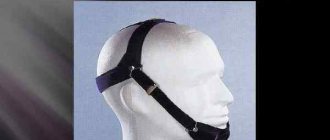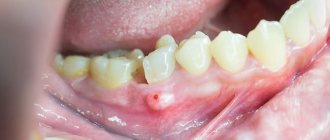November 8, 2018
Not everyone today understands the specializations of doctors, thinking, for example, that only a dentist can cope with diseases of the dental system. This is not true; there are many important issues that an oral and maxillofacial surgeon solves. Journalists from the UltraSmile.ru portal offer today to discuss those issues that require contacting this excellent specialist. The information will be useful to absolutely everyone, because if something happens, readers will be savvy and will definitely immediately seek help from the doctor who can solve the problem. Also in the article, look for information about what a specialist in this category should be.
Criteria for choosing a competent specialist
Sometimes an oral and maxillofacial surgeon is simply necessary to treat pathologies of the face, neck and oral cavity. But unlike the same plastic surgeon, who works primarily with soft tissues, a maxillofacial specialist also uses the hard bones of the skull and skeleton when working. In addition, its functions are aimed not only at realizing fantasies about ideal appearance. The doctor brings great practical benefit by solving emergency situations, correcting congenital anomalies, restoring the patient’s health and the functionality of organs impaired by the disease.
Who is an oral and maxillofacial surgeon?
Surgery is an extremely responsible matter, requiring not only a careful approach, a large amount of knowledge, but also incredible responsibility on the part of the specialist. The face and neck are very complex areas from a therapeutic point of view; there are many blood vessels and capillaries, nerve endings (the ternary nerve) and the maxillary sinuses. A face is also a person’s calling card. Injuring it or nearby organs during work means dooming the patient to suffering later. We can say that these nuances make the work of an oral and maxillofacial surgeon extremely dangerous. They require him to have perfect knowledge of anatomy and high qualifications.
Also, a specialist must have computer skills and constantly improve - after all, medicine does not stand still; to facilitate the treatment process, it is no longer enough to wield a scalpel, you need to be able to work with a laser, 3D treatment modeling programs and diagnostic programs, various surgical templates (especially relevant for dental implantation), tomographs and computed tomography data.
The specialist must have skills in working with 3D tomography
Often, a doctor in this category must work in close collaboration with other specialists. For example, with orthopedists and ENT doctors. Which requires the ability to negotiate and interact in a team.
Some people mistakenly confuse an oral and maxillofacial surgeon with an oral surgeon. But the fact is that the area of influence of the first is more extensive than the second. The second mainly relates directly to the dental system, and a maxillofacial specialist can work with both teeth and the facial, ocular and even cervical regions.
And now it’s time to talk about what problems a surgeon in this specialty will definitely help solve.
Where to find a good maxillofacial surgeon in St. Petersburg?
The DentalHouse clinic employs experienced, highly professional surgeons who provide services in the following areas:
- Craniomaxillofacial traumatology, which includes the treatment of injuries and fractures of the jaw bones.
- Craniomaxillofacial plastic surgery to restore the aesthetics and essential functions of the patient’s dental system. They are carried out after congenital and acquired deformities.
- Orthognathic surgery for the treatment of various malocclusions and jaw development with the preservation and normalization of all functions of the dentofacial apparatus.
Presence of dystopic or impacted wisdom teeth
Wisdom teeth, despite the fact that they have recently been considered rudiments and are not present in all people, still continue to cause a lot of problems for their owners. They are considered the most complex elements of the dentition and are not always treatable. Doctors often raise the question of their removal in cases where the “eights” occupy an abnormal position as they erupt into the bone. They may come out partially, or they may even begin to cause inconvenience to the “neighbors,” interfering with their normal growth and functioning, injure the mucous membrane, and serve as a source of infection in the event of a supragingival hood.
Wisdom tooth removal surgery
“Girls, I don’t really trust dentists in general. The removal of a wisdom tooth was akin to a disaster for me; I was no longer afraid of the operation, but of the consequences. I wanted to find a doctor who would do everything perfectly and then not refuse help. They recommended a surgeon to me, but it turned out that he was also a maxillofacial surgeon. But not only in the specialty, as it turned out later, but also from God, as they say.”
Victoria Ogareva, from correspondence on woman.ru
So, a maxillofacial surgeon, just like a dental surgeon, when indicated, can dissect that same supragingival hood, can straighten and correct the position of the “eight”, and can efficiently remove it when indicated for surgical intervention. After all, the procedure for removing such a tooth is not considered standard at all; it requires special care and a very competent approach, since in addition to removal it requires intervention in the bone structure of the jaw and its subsequent restoration.
Corrective Jaw Surgery
Jaw surgery is also known as orthognathic surgery. Oral surgery corrects deformities of the jaw bones and teeth to improve their function. Not only does surgery improve the function of the jaw and teeth, but it also improves the appearance of the face. When jaw problems cannot be corrected with orthodontics, jaw surgery can be an excellent alternative. Orthodontic treatment is usually performed before jaw surgery. Orthodontic treatment moves teeth using permanent appliances. It takes 6-9 months to remove fixed appliances and perform jaw surgery. Jaw surgery may involve the upper jaw, which is called the maxilla, or the lower jaw, which is called the mandible, or may involve a combination of both jaws. Jaw surgery can help:
- Correct speech or swallowing problems
- Close your mouth comfortably and completely
- Improve chewing and biting
- Correct breathing problems during sleep such as snoring
- Correct setback of the lower jaw and chin
- Correct unbalanced appearance of the face from the side or front
Malocclusions
It is not always possible to correct irregularities in the structure and shape of teeth using braces or trainers and mouth guards. Sometimes doctors deal with severe defects of the maxillofacial system, with congenital bone anomalies that cannot be corrected by conservative treatment methods. In any case, structural pathologies first require surgical intervention or bite correction, and only then can you think about correcting the dentition using methods that do not cause so much fear in patients.
Scheme for correcting malocclusion surgically
Before any surgical intervention, a specialist must refer you for a blood test (in some cases, urine), conduct an X-ray or multispiral1 tomography, and exclude contraindications and chronic diseases. This must be done to protect the patient from risks, to recreate an accurate picture of the disease, and to eliminate the possibility of errors during the surgical procedure.
For example, an open bite is a direct indication for an appointment with an oral and maxillofacial surgeon. It needs to be corrected surgically no earlier than 18 years of age, when the jaws are already fully formed.
Cost of services of the maxillofacial surgery department in St. Petersburg
The initial consultation of our specialists is paid. The promotion does not apply to this service.
The cost of services is indicated in the price list. Prices are indicative only. The final cost of treatment may differ from that indicated in the price list depending on additional diagnostic and other manipulations performed by a specialist.
In order to receive a detailed plan and final assessment of the entire treatment, make an appointment with a surgeon at our clinic in any way convenient for you: you can call the clinic administrator by phone, or fill out the form provided on the website.
We also recommend taking advantage of our promotions for implantation and dental treatment in installments. Read more about all the great offers in the “Promotions” section on the website.
Congenital and acquired pathologies, jaw injuries
You've probably heard about pathologies such as cleft palate or cleft lip, and chin asymmetry. So, a maxillofacial surgeon will also help correct them. In this case, he may have to solve the problem not with one, but with several successive operations (there may even be 5 or more of them).
A cleft palate is a reason to contact an oral and maxillofacial surgeon
And do not forget that in case of congenital or hereditary anomalies, it is better to show the child to the doctor as soon as possible, and not wait until he grows up. In childhood, even such a serious thing as surgery is easier, but the child recovers faster and has the opportunity to restore the aesthetics of the face and the functionality of the organs without laborious and morally expensive operations.
Preparation, diagnostics
To clarify or make a diagnosis, a wide range of studies is used:
- radiography;
- sialography;
- Ultrasound, CT, MRI;
- radiovisiography.
Also, to get the most complete picture, you will need to undergo a series of laboratory tests. The doctor determines what examinations will be needed in a particular situation during the initial appointment.
Inflammation of the jaw bone and oral mucosa
Let's remember that caries and pulpitis that have not been cured often cause various complications, purulent and inflammatory processes leading to life-threatening consequences:
- periodontitis: inflammation of the tissue at the apex of the tooth root is characterized by unbearable pain and can lead to loosening and loss of dentition,
- periostitis: can spread to the entire jaw and go deep into the organs if left untreated,
- osteomyelitis: inflammation of the jaw bone is accompanied by pain radiating to the head, increased body temperature, general weakness and enlarged lymph nodes,
- abscesses: in this case, only soft tissues are affected by pus, but a maxillofacial surgeon will also be able to provide quality assistance.
The photo shows an operation to remove pus.
Serous and purulent complications can also be caused by poorly performed endodontic treatment of a tooth, trauma, or side effects of medications.
This specialist will also provide emergency assistance in the presence of phlegmon, lymphadenitis, inflammation of the salivary glands, maxillary sinuses and temporomandibular areas.
Surgeries to correct cleft lip and palate in children
The main basic operations for the correction of congenital cleft lip are cheiloplasty and cheilorhinoplasty.* They differ in the volume and methods of surgical interventions performed, and are performed according to strict principles, but with individual characteristics.
To eliminate the cleft of the upper lip, reconstructive cheilorhinoplasty is mainly performed, which allows restoring the anatomical integrity of the organ while ensuring the functional component and creating optimal prerequisites for aesthetic well-being.
All surgical interventions are included in the basic compulsory medical insurance program and are absolutely free for parents of children from all regions of the Russian Federation.
- 1. Cheiloplasty.
An operation used for partial cleft lip without significant deformation of the nasal vestibule and its cutaneous-cartilaginous section. - 2. Rhinocheiloplasty.
The operation, used for complete cleft lips and in the presence of severe deformation of the nasal vestibule and its cutaneous-cartilaginous part, can be combined with periostoplasty for cleft lip, alveolar process and palate. - 3. Uranoplasty.
An operation used for partial and complete cleft palate, in which the hard palate and soft tissues of the velum are restored.
All operations are performed using multicomponent combined intubation anesthesia and last on average from 1.5 to 3 hours. The child's stay in the hospital is usually 8 - 10 days. Within 3–5 days after the operation, the swelling of the soft tissues subsides, the child’s condition improves, and he gradually adapts to new living conditions.
Dental implantation
None of us today are immune from tooth loss. And this can be connected with literally anything, from injuries received (a maxillofacial specialist, by the way, can even straighten the jaw through facial surgery after an injury), ending with inflammatory processes in the oral cavity (in particular, we are talking about inflammation of periodontal tissues, periodontitis and periodontal disease).
What does a person need who has lost one or even more teeth, up to complete edentia? First of all, restore the functionality of your teeth and start chewing food fully again. Then you need to think about the aesthetics of a smile, which is necessary for any of us for self-confidence and a good mood.
Do you agree that it is very, very difficult for an ordinary dentist to achieve such goals, even if he is a hundred times a professional in his field? Moreover, with those methods of one-stage implantation, which today help solve the problems of patients even with complete edentia in a matter of days, the work of ordinary dentists is in principle unacceptable. At a minimum, the doctor must be an implant surgeon, or better yet, a highly professional maxillofacial surgeon and implantologist.
The photo shows the installation of the implant
Only such a specialist, in the most difficult conditions of bone tissue atrophy (for example, when wearing removable dentures for a long time, with periodontitis), will be able to accurately determine the quality of your bone, its thickness, and choose the implant models that are suitable for you (not without the help of innovative computer programs, of course) . In addition, with protocols for instant loading with a prosthesis, these include all-on-3, all-on-4, all-on-6, ProArch and others, which allow for comprehensive restoration of teeth, the doctor is required to perform an operation with minimal tissue trauma, often without bone grafting or in combination with it. In most cases, implants here are installed at an angle, which means they require elaboration and treatment planning from start to finish. This requires a very competent doctor who has received appropriate training.
For example, when using the so-called basal implantation, when 8 to 12 implants are installed into the patient’s inflamed and thinned bone, it is required that the doctor be trained in this practice abroad, in Europe. Zygomatic implantation methods, when the patient's teeth are restored on the upper jaw bone, using long zygomatic implants, generally imply the ability to perfectly know the nuances of treatment, bypass the maxillary sinuses and practice the protocol over many years of work in this field. The quality of the result, its longevity, and the absence of the risk of peri-implantitis depend on all this.
Zygomatic implants are placed outside the jaw
An oral and maxillofacial surgeon is a real salvation for many categories of patients; a qualified specialist can also practice some plastic surgeries, such as blepharoplasty, gum surgery and rhinoplasty, vestibuloplasty, and facelift. It will restore the aesthetics of the face and smile, and will also save in situations that require immediate resolution. The main thing is to find a doctor who will be one hundred percent suitable for the position held and will really help make your situation easier, and not complicate it.
Notice
: Undefined variable: post_id in
/home/c/ch75405/public_html/wp-content/themes/UltraSmile/single-item.php
on line
45 Notice
: Undefined variable: full in
/home/c/ch75405/public_html/wp-content /themes/UltraSmile/single-item.php
on line
46
Rate this article:
( 20 ratings, average: 4.95 out of 5)
prevention
- Lezhnev D.A. Possibilities of multislice computed tomography for solving problems in dentistry and maxillofacial surgery. Siberian Medical Journal (Tomsk), 2010.
Pros and cons of the profession
Oral and maxillofacial surgery is one of the highest paid branches of medicine, which is a definite advantage. Experienced doctors are in demand and have good career prospects. But there are also disadvantages:
- high level of responsibility;
- psycho-emotional and physical stress;
- irregular working hours;
- complex and painstaking work, since the facial zone is an abundance of blood vessels and nerve endings that cannot be touched under any circumstances;
- low level of technical equipment in public clinics, which limits the doctor’s capabilities.
Comments
I contacted a dental surgeon only with the question of implantation. And I’m afraid of doctors, even though they do such useful work. Tell me, do everyone have wisdom teeth coming through? I don't have anything yet, maybe this is wrong?
Anna (11/22/2018 at 07:54) Reply to comment
Why, after being examined by an ENT specialist for long-term nasal congestion, was I sent to an oral and maxillofacial surgeon? I never thought that there was a direct connection between the nasal septum and teeth!
Christina (11/22/2018 at 12:34 pm) Reply to comment
A very difficult profession. How much you need to know and be able to do to be such a doctor! What is multislice tomography and how does it differ from conventional tomography? And do other doctors use this research method?
Karina (11/22/2018 at 08:58 pm) Reply to comment
Tell me, I started having pain in my wise tooth two weeks ago, the tooth itself is not visible, only the gums are swollen. Tell me, is it better to remove it immediately, or wait until it breaks through the gums.
Svetlana (11/22/2018 at 9:11 pm) Reply to comment
My lower jaw joint has been hurting for about 2 weeks now, I can’t open my mouth completely, I can’t chew on the painful side. When chewing movements, I hear a loud sound, like dull clicks. I am very afraid that a little more and I will be like an old woman who, after a yawn, adjusts her jaw herself, and I am only 21 years old. Where should I go, a surgeon or an oral surgeon, and how serious is the problem?
Vera (12/12/2018 at 7:11 pm) Reply to comment
When I was a child, they put a plate on my teeth and then the dentist said that I had a small jaw and in the future there might be problems because of this. I scared that my teeth would start pressing on each other and would gradually come out. Please tell me, does this even happen and at what age is it corrected?
Anastasia (12/14/2018 at 9:27 pm) Reply to comment
I am suffering from malocclusion; I used braces before, but this is clearly not enough to cure me. The fact is that I am afraid of all kinds of surgical operations (Are there ways without going to a surgeon?
Elena R (12/27/2018 at 10:09 pm) Reply to comment
- Most likely, you came across a bad orthodontist who did not complete the work. Again, you need to go for a consultation with another specialist - you can choose trusted orthodontists on our website. Unfortunately, serious anomalies cannot be treated without surgery. But there are situations where even complex cases are solved by a combination of various actions - for example, installing a plate on the teeth, using orthodontic implants. Visit your doctor and have a face-to-face consultation - this will help you make the right choice and make an informed decision.
Editorial staff of the portal UltraSmile.ru (01/03/2019 at 08:36) Reply to comment
I read this article and for some reason I really didn’t want to remove my wisdom teeth. It turns out this is a rather complicated operation and probably costs a lot. Tell me, if a wisdom tooth grows incorrectly, does it need to be removed?
Artem (12/30/2018 at 11:55 pm) Reply to comment
- If there is no direct evidence for this, then there is no need to remove it. If it grows correctly, does not interfere with the rest of the teeth, does not displace them, does not put pressure on them - let it grow to its health! Be sure to find a doctor who will treat wisdom teeth - this is quite possible.
Editorial staff of the portal UltraSmile.ru (01/03/2019 at 09:35) Reply to comment
For about a month I have been worried about fever and weakness, I understand that I have osteomyelitis, my jaw seems to be constantly on fire. Please tell me, is it possible to undergo treatment without surgery? Maybe simple drugs are inexpensive.
Veronica A (01/06/2019 at 01:15) Reply to comment
- Contact your doctor immediately! With such inflammations, self-medication is unacceptable, especially if we are talking about the presence of pus. It is very dangerous!
Editorial staff of the portal UltraSmile.ru (01/11/2019 at 08:33) Reply to comment
A friend of mine had some irregularities in his jaw; he had surgery. Now I have an incorrect bite in the lower jaw, can it be corrected without surgery, for example with dental braces? I'm honestly afraid to have surgery.
Inna (01/06/2019 at 14:44) Reply to comment
- Unfortunately, it is not possible to say so clearly whether it is possible or not. You need to understand what kind of pathology you have. You can contact an orthodontist for a personal consultation - today in many clinics the initial examination and even diagnosis (panoramic image) are completely free. This will be the right decision.
Editorial staff of the portal UltraSmile.ru (01/13/2019 at 02:31) Reply to comment
Write your comment Cancel reply
What to expect after consulting a doctor
The specialist determines therapeutic tactics individually, based on the results of a comprehensive examination. Diseases or birth defects that do not require urgent intervention are treated in stages, with the involvement of related specialists (if necessary). The doctor will carry out all preoperative measures, set a date for surgery and hospitalization.
If damage to the facial and cervical area requires emergency surgical intervention, within an hour after treatment, the patient will already be operated on. In this case, the patient is immediately hospitalized and undergoes an urgent preoperative examination.
Temporomandibular joint disorders
The temporomandibular joints (TMJs) are the two joints that connect the jawbone to the skull, and there is one joint on each side of the jaw. One of the temporomandibular diseases causes pain in the jaw joint and in the muscles that control jaw movement. In most cases, pain in the jawbone area or associated muscles can be relieved with non-surgical treatment, and the pain subsides after a short period of time. When non-surgical treatment does not control pain and conservative measures fail, surgery is the last resort. Several types of temporomandibular joint surgery are possible, but the right type depends on the individual's symptoms or severity. There are three common types of temporomandibular joint surgery: arthrocentesis, arthroscopy, and open joint surgery.

